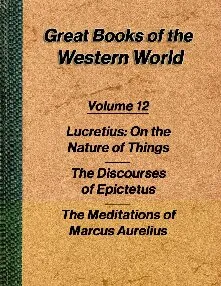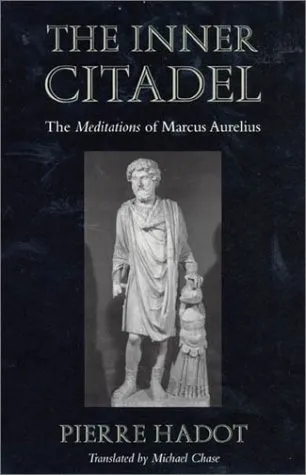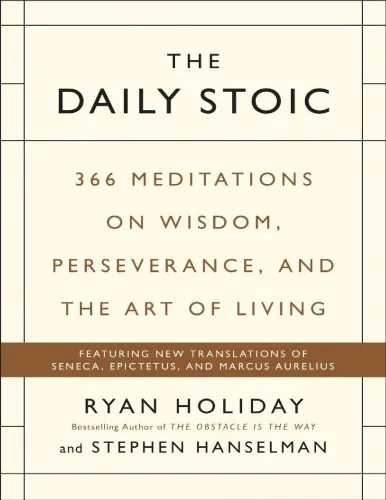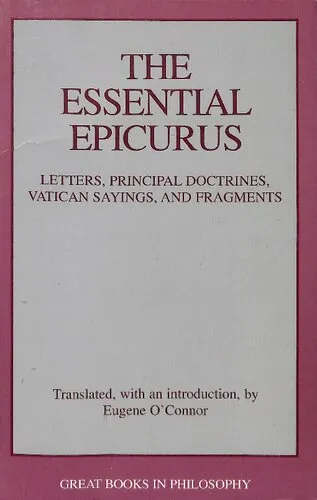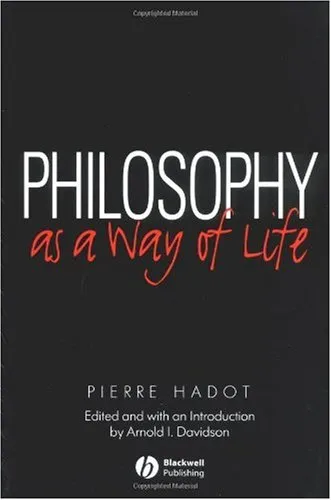On the Nature of Things by Lucretius, The Discourses by Epictetus and The Meditations by Marcus Aurelius
4.0
Reviews from our users

You Can Ask your questions from this book's AI after Login
Each download or ask from book AI costs 2 points. To earn more free points, please visit the Points Guide Page and complete some valuable actions.Related Refrences:
Persian Summary
Introduction to a Timeless Work of Philosophy
The collection "On the Nature of Things by Lucretius, The Discourses by Epictetus, and The Meditations by Marcus Aurelius" offers readers an enlightening journey through ancient philosophical thoughts. Comprising works from three profound thinkers, this compendium provides a comprehensive look into Epicureanism and Stoicism—two influential schools of thought that have shaped Western philosophy for centuries.
Detailed Summary of the Book
Lucretius, a Roman poet and philosopher, composed "On the Nature of Things" to expound on Epicurean philosophy. His eloquent verses explore the nature of the universe, exploring themes such as atomism, the nature of the gods, and the pursuit of happiness through understanding the natural world. Lucretius aims to free humanity from superstition and the fear of death by embracing rational thought and empirical observation.
Epictetus, a former slave turned philosopher, presents his teachings in "The Discourses". He emphasizes the importance of focusing on what we can control and accepting what we cannot. His practical wisdom highlights virtues such as endurance, self-control, and moral integrity as pathways to leading a fulfilling life. The Discourses serve as a guide for living with intention and cultivating inner freedom.
In "The Meditations", Roman Emperor Marcus Aurelius reflects on his own life and Stoic philosophy during his reign. Composed as personal journal entries, his introspections provide insights into maintaining personal integrity and philosophical principles amidst public life and leadership challenges. Marcus Aurelius offers a compelling vision of how to live according to reason, virtue, and tranquility.
Key Takeaways
- Understanding the natural world can liberate us from fear and superstition (Lucretius).
- Focus on what is within your control and accept what is beyond it (Epictetus).
- Living according to reason and virtue leads to tranquility and happiness (Marcus Aurelius).
Famous Quotes from the Book
“Thus the sum of things is ever being reviewed, and mortals dependent one upon another. Some nations increase, others diminish, and in a short space the generations of living creatures are changed and like runners pass on the torch of life.” — Lucretius
“It is not what happens to you, but how you react to it that matters.” — Epictetus
“You have power over your mind, not outside events. Realize this, and you will find strength.” — Marcus Aurelius
Why This Book Matters
This collection of works remains significant in today’s world, providing timeless wisdom for managing life's challenges and uncertainties. Lucretius offers insights into nature and existence that resonate with modern scientific thinking. Epictetus and Marcus Aurelius contribute powerful Stoic principles that continue to guide individuals seeking moral integrity and emotional resilience in their daily lives.
By blending Epicurean and Stoic philosophies, this book appeals to contemporary readers seeking a balanced approach to understanding life's complexities and pursuing personal growth. These ancient texts not only furnish philosophical insights but also act as self-reflective tools for achieving a harmonious and meaningful life.
Free Direct Download
You Can Download this book after Login
Accessing books through legal platforms and public libraries not only supports the rights of authors and publishers but also contributes to the sustainability of reading culture. Before downloading, please take a moment to consider these options.
Find this book on other platforms:
WorldCat helps you find books in libraries worldwide.
See ratings, reviews, and discussions on Goodreads.
Find and buy rare or used books on AbeBooks.
1620
بازدید4.0
امتیاز0
نظر98%
رضایتReviews:
4.0
Based on 0 users review
Questions & Answers
Ask questions about this book or help others by answering
No questions yet. Be the first to ask!
